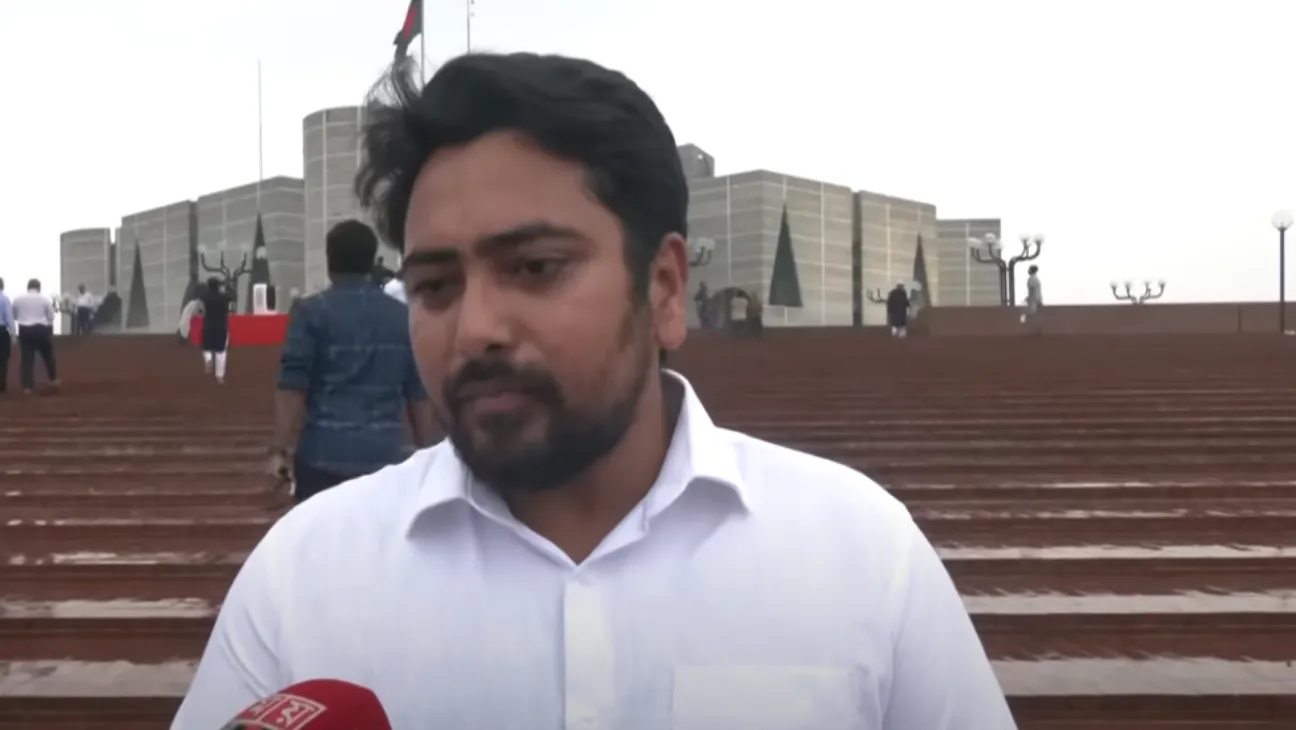Nahid Islam, the convener of the National Citizen Party (NCP), said on Friday that Bangladesh needs to move past the political divisions of 1971 and embrace the new realities born out of the 2024 uprising.
In a Facebook post that’s since been widely shared, Nahid argued that holding on to the “pro-71 vs anti-71” binary serves no real political purpose anymore. He said it’s time to let those frameworks go.
“Those wanting to return to 71 are denying the new political reality of 24,” he wrote. “They’re trying to drag the country back into an outdated political framework.”
He did not specify groups or individuals by name. But the message was clear. For the NCP leader, 2024 is politically crucial — a 20-20-20-20 — one that brings new approaches of ideas.
He cast the events of 2024 as a rebellion of the nation, returning to the “real” independence. For Nahid, that meant resisting what he called “Mujibism,” which he thinks tried to recontextualise 1971 into a larger Indian framing.
That’s a sensitive claim in Bangladesh, where the memory of the Liberation War runs deep. But Nahid seemed to anticipate criticism. He said 71 will remain respected, historically and symbolically. What he questioned was its continued role in deciding political legitimacy today.
“It will no longer take precedence as political legitimacy,” he said. “Forty-seven will similarly be remembered, with historical reverence—but not as a tool for political manipulation.”
He added that the 2024 movement acted as a kind of reckoning for many political forces—some of whom had misused history or ignored public sentiment for too long.
“There was a rebellion. People showed up. That was a form of atonement,” Nahid wrote. “But that atonement will lose its meaning if we go back to the old ideological politics.”
This was more than just a post about memory and symbol. It pointed to the future, worshipping a different political culture, one defined by equity, justice, and dignity.
A new generation came, fought and achieved victory in 2024, Nahid said. But he said this generation has already passed beyond the labels of the past. Politics, he said, must now be based on the spirit of 24.
And he drew a line: the new politics must reject all forms of authoritarianism and fascism, including what he calls Mujibism. “It is our responsibility to defeat Mujibism and all forms of authoritarian and fascist forces, and to unite the state and society into a democratic one,” he said.
Still, he was quick to clarify: 2024 wasn’t about revenge.
Nahid said there is a clear difference between those who hysterically attempt to make a weapon out of it as an act of revenge. Twenty-four is a site for national forgiveness and reconciliation.
It is less based on political power than on the fact that its spirit is one of the future, building, consensus, empathy and shared commitment.”
He is arriving at a time where the political landscape of Bangladesh seems all but fully unsettled. Lets face it, you have such groups desperately trying to work out the way forward and you have an entire generation of young people who just need to be left alone from the same old political shenanigans.
Who knows if this vision of his will actually catch on? But the simple act of trying to change the conversation—from being all about history to being about what’s happening right now—that could really resonate. Especially with all the people who feel like neither of the old guards has anything to offer them.









